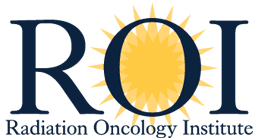William Mendenhall, MD, FASTRO and Nancy Mendenhall, MD, FASTRO

Please tell us about your role at the University of Florida. Are you involved in patient care, teaching and/or research?
Bill: I am a full-time clinician and treat patients at UF Health in Gainesville and the University of Florida Proton Therapy Institute in Jacksonville. I work with residents, medical students, and undergrads who shadow me at times. I mostly treat patients with head and neck, skin, prostate, and gastrointestinal cancers. I perform and publish outcome studies, review articles, and book chapters.
Nancy: I am involved in the University of Florida Proton Therapy Institute in several roles: a practicing physician treating breast, prostate, lymphoma, and occasional pediatric patients; a clinical researcher involved in prospective outcome tracking studies, clinical trials, and comparative effectiveness studies; an educator for students, residents, fellows, patients; and a medical director, working with our CEO and administrative team on strategic planning, policy, safety and quality, faculty and staff issues, etc.
Please highlight any special accomplishments in the field of radiation oncology.
Bill: Working with my spouse and partner for over 40 years, having two wonderful daughters, and having a pretty balanced family life.
Nancy: I have had the pleasure and honor of being involved in the treatment of several thousand patients. I am pleased to have been involved in a number of clinical research studies which helped defined treatment strategies in lymphoma, breast, pediatric and prostate cancer, and most recently, I am leading a PCORI-funded comparative effectiveness study for IMRT and Proton therapy in prostate cancer. I am proud to have been involved in the training of many residents who have made differences in the lives of cancer patients in their community and academic practices across the country. Finally, I am privileged to have been involved at the inception, development, and leadership of the UF Health Proton Therapy Institute, the first proton facility in the Southeast.
Why did you decide to become a radiation oncologist?
Bill: I met Dr. Rod Million on the tennis court. He asked me if was interested in radiation oncology and I said, “No.” He offered me an American Cancer Society stipend to do a six-week rotation. After two weeks, I was asked how I liked it and I responded positively. I was then asked if I wanted to do a residency and I said, “Yes” (this was before radiation oncology participated in the match).
Nancy: I was fascinated by the disease process of cancer and preferred the direct interventions of surgery and radiation and their focus on three-dimensional anatomy compared to medical oncology. I enjoyed the creativity of treatment planning in radiation oncology, the prolonged patient contact of protracted fractionated radiation treatments, the privilege of seeing the effects of radiation evolve over a patient’s lifetime, and the culture of curiosity in a discipline that tracks and always seeks to improve patient outcomes. Within a week of my radiation oncology rotation in medical school, I knew it would be my profession.
How do you envision the future of the field of radiation oncology? In what ways would you like to see it grow/evolve?
Bill: The future will include more technical advances in heavy particle radiotherapy with both protons and carbon as well as the combination of radiotherapy with other modalities such as chemotherapy and targeted therapy. We also need to reduce residency slots because we are training too many radiation oncologists which puts graduating residents at a disadvantage.
Nancy: I think the future of radiation oncology is exciting and bright. I believe particle therapy will achieve measurable and relevant improvements in outcomes and therefore play an increasing role in radiation therapy. I also think that radiation biology will play an important role in explaining radiation effects and identifying opportunities for modifying radiation effects to further improve outcomes. With increased development in treatment planning and delivery, I think increased precision will also lead to better outcomes.
What prompted your decision to make a financial contribution to the Radiation Oncology Institute at the Founders’ Circle level?
Bill: Because I would like to support research in radiation oncology and our specialty in general. I have benefited enormously from our specialty and would like to give back.
Nancy: I love the specialty of radiation oncology, have had an extremely fulfilling career, and want to help ensure the specialty can survive and thrive through vibrant research conducted by the next generation. ROI provides an opportunity for us all to contribute to the future of our field. I felt that joining the Founders’ Circle would result in a meaningful level of contribution.
What would you tell others who are considering a gift to the ROI? Why should they give to the ROI?
Bill: Radiation oncology has given us an opportunity to help patients with very difficult problems and we have, in turn, benefited from it in many ways.
Nancy: While there are many ways to contribute to our discipline’s future through gifts of time, talents, and contributions, the ROI has as its mission the support of promising novel radiation related research; I believe this research is the best way to ensure we maximize the ultimate benefits of radiation on future cancer patients. Contributions to ROI seem to me to be the likeliest way to have a future positive impact on our field.
How did you meet your wife/husband?
Bill: I met Nancy at the hospital in January 1979 when I was an intern and she was a third-year medical student. I asked her for a date and she responded that she had tickets for Preservation Hall and, “I guess you can come along if you want too.”
Nancy: I was a third-year medical student, heading to the library when I stopped to have lunch with some friends at a campus courtyard. Bill was with them and shortly afterwards we began to date. Along the way, I took an elective in radiation oncology, a field he had already chosen, and fell in love with the field. The rest is just history. We became partners in every respect: at home in the raising of our girls (and our dogs); at leisure with fishing, hiking, biking, reading, gardening, and cooking; and at work with shared interests, values and goals.
What are the pros and cons of having a spouse who is also in radiation oncology?
Bill: Working with Nancy has been marvelous. It’s been fun working together, raising our daughters, and having fun outside of work going to the beach, fishing, and traveling. There really have been no cons.
Nancy: We have been able to be partners in all aspects of our lives and therefore to fully share not only the joys but challenges and disappointments. Special pros include always having a work partner who shares values, visions, and can be trusted, and always having a spouse who understands the emotional peaks and valleys of our work as well as the time and commitment demands. In our case, since we were able to have jobs in the same program, there were no cons.
What are your hobbies and pastimes?
Bill: Fishing, hunting, scuba diving, and traveling.
Nancy: Gardening, reading, cooking, sewing, photography, hiking, fishing, travelling.
What other comments about the field would you like to share?
Nancy: I believe we are incredibly lucky to be in a field that allows for such meaningful relationships with patients, such creativity in treatment planning, such exciting technologic developments, and such important collaborative roles on the cancer treatment team, all in a field with a culture of curiosity that is always examining itself and seeking to be better.














